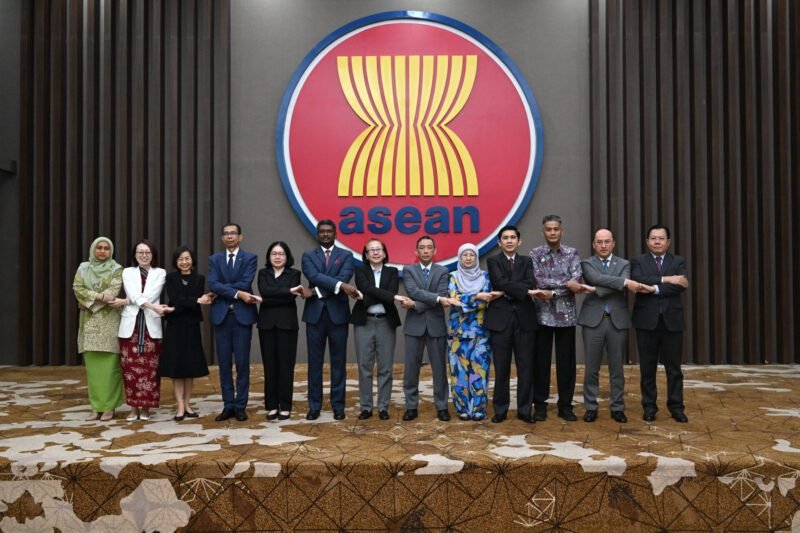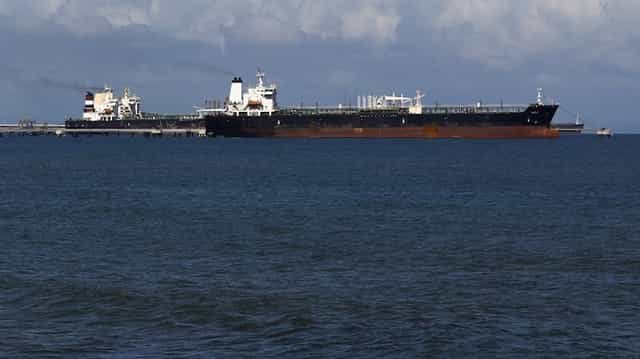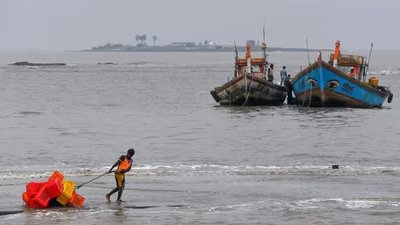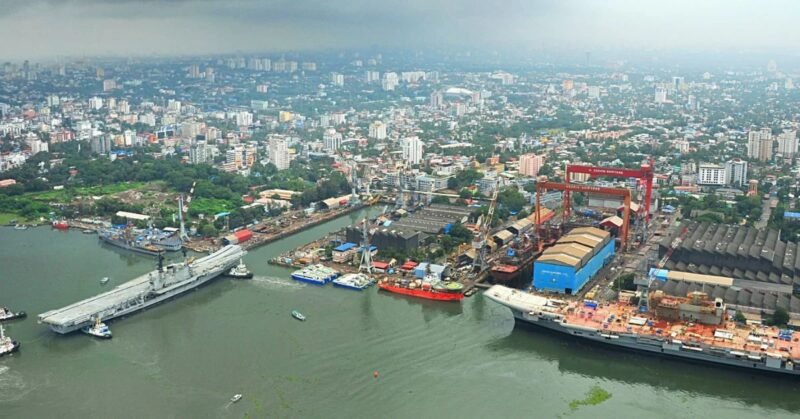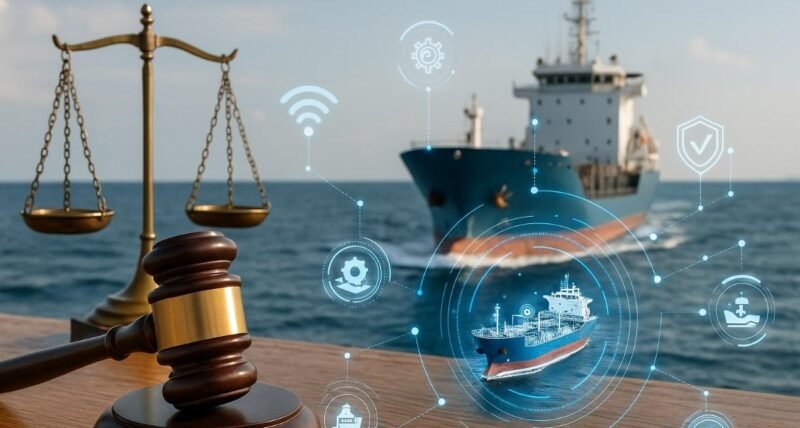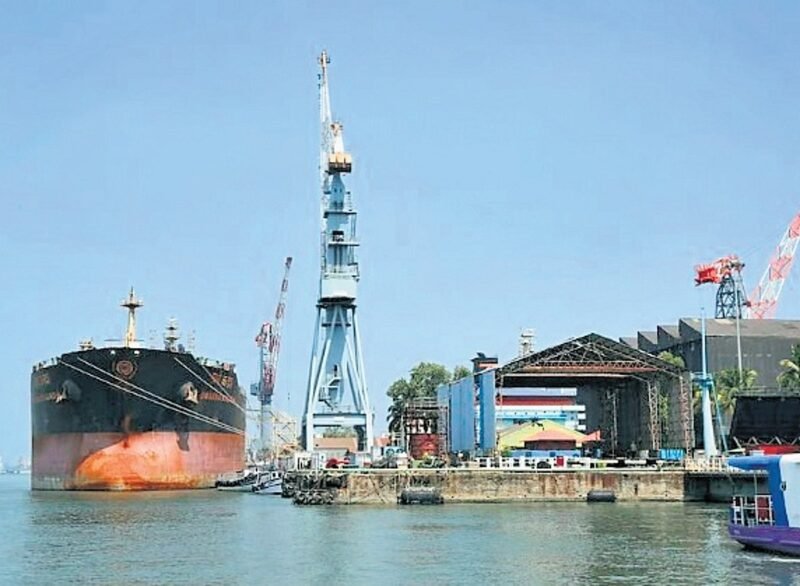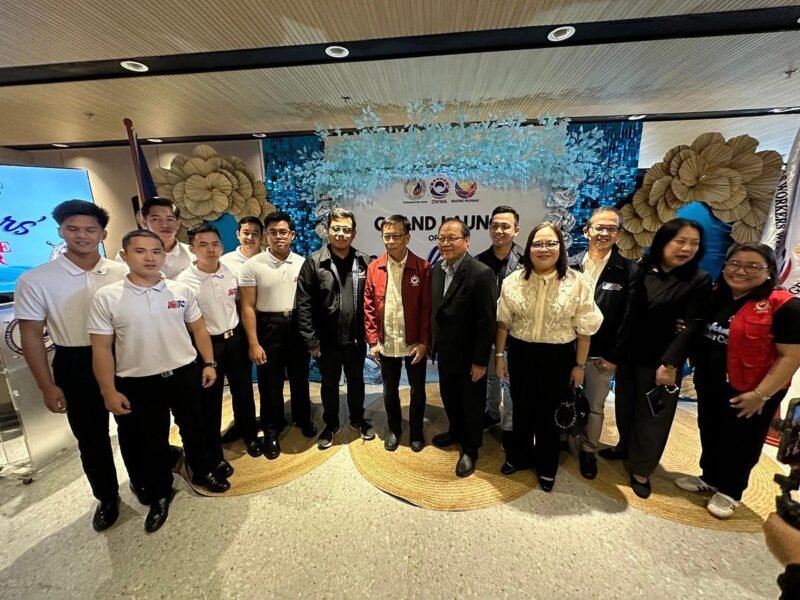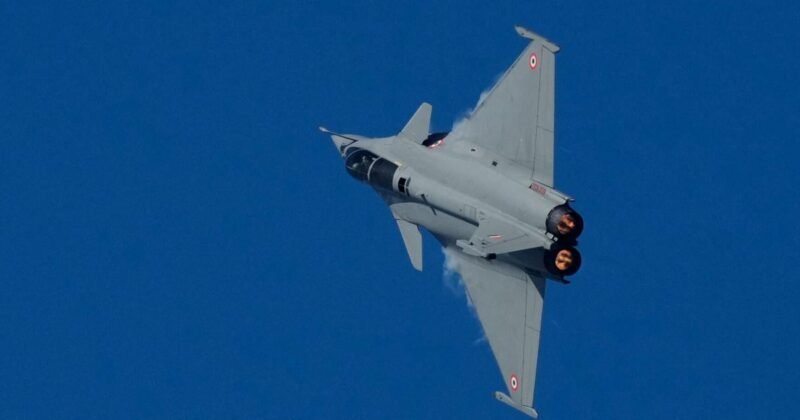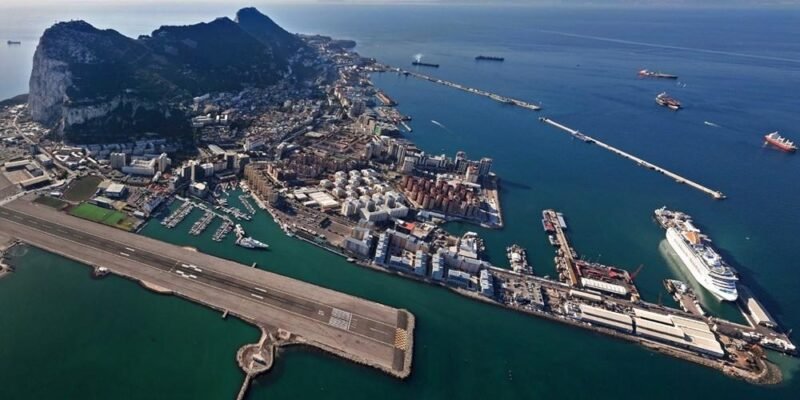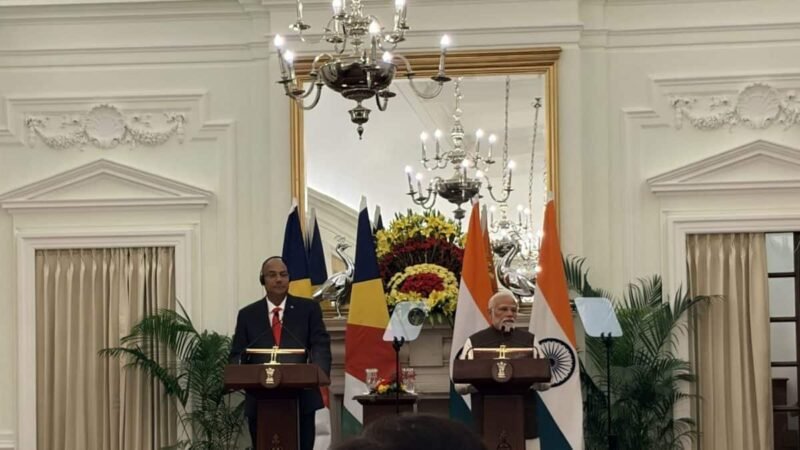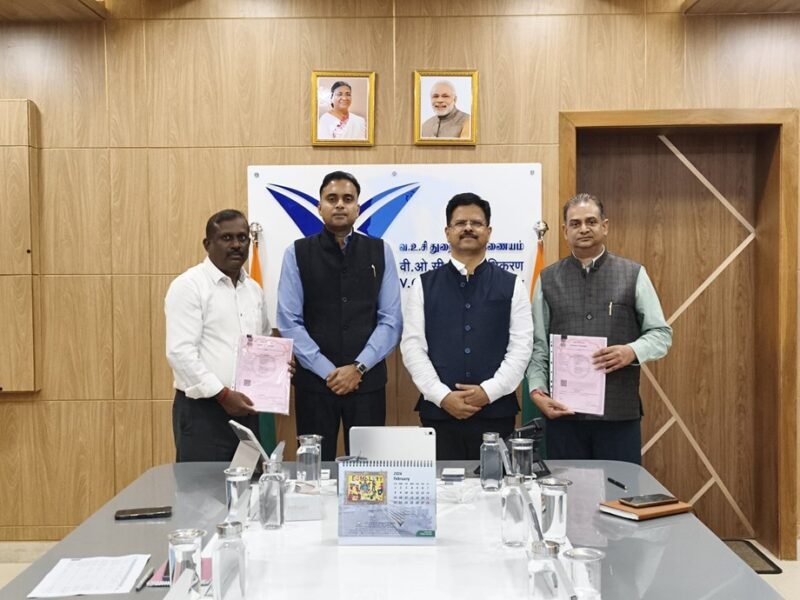Following Stories compiled in this News Digest for the week from 03 Jan 2022 to 09 Jan 2022 in descending order:
- Royal Caribbean Pauses Sailings Due To Omicron Concerns
- Transport Industry Expects Continued Staffing Woes as Concern Over Omicron Spreads
- New Sea Change Fund to provide grants for seafarers in crisis
- BIMCO Urges Gulf of Guinea States to Step Up Prosecution of Pirates
- Agreement to Develop India’s First LNG Import Terminal
- UAE trying novel ways to spread maritime industry awareness
- UK: Natalie Shaw receives New Year’s MBE Honour for seafarer work
- 11 Indian Sailors Rescued After Vessel Sinks
- Cyprus Calls for Patrols to Combat Maritime Piracy
- bp and Maersk Tankers carry out successful marine biofuel trials
- NASA Supported Study Confirms Southern Ocean Is Absorbing Carbon
- Houthis Seize UAE-Flagged Cargo Ship off Yemen
- India: Multi-modal transport offers huge employment
- Sounds of the Ocean Reveal a Hidden World – And How We Might Save It
Royal Caribbean Pauses Sailings Due To Omicron Concerns
09 Jan 2022
Royal Caribbean Cruises Ltd has paused some of its cruise operations amid rising numbers of COVID-19 infections due to the Omicron variant.

The sailings of three ships – Serenade of the Seas, Jewel of the Seas, Symphony of the Seas – have been paused while the return of its Vision of the Seas to cruising has been postponed to March 7, 2022, the cruise line said in a statement on Friday.
“We regret having to cancel our guests’ long-awaited vacations and appreciate their loyalty and understanding,” the company adding that these measures have been implemented “in an abundance of caution.”
Earlier this week, Royal Caribbean called off its Spectrum of the Seas cruise for Jan. 6 after nine guests on its Jan. 2 trip were identified as close contacts to a local Hong Kong COVID-19 case. Reference
Transport Industry Expects Continued Staffing Woes as Concern Over Omicron Spreads
08 Jan 2022
From seafarers refusing to get back on ships to truck drivers whose concern over Covid-related border closures trumps the lure of higher pay, the transport industry is bracing for another roller coaster year of supply-chain disruptions.

As omicron infections surge and governments tighten restrictions, logistics companies around the world, from global giants to small businesses, can’t find enough staff. According to the International Road Transport Union, around one-fifth of all professional truck driving jobs are unfilled, despite many employers offering increased wages. Some pockets of shipping are also sounding the warning bell about future hiring prospects.
As the mutated omicron variant takes hold, workers who deliver goods on ships and trucks are shouldering the brunt of a supply chain infrastructure still mired in chaos. Faced with long weeks of quarantine combined with the precarious nature of crossing borders and fears of getting sick, some people are refusing contracts while others are looking for work elsewhere, companies say.
While the crew-change crisis that prevented seafarers from getting home and being replaced with fresh mariners has mostly eased — fewer than 5% of seafarers were onboard ships beyond the expiry of their contracts in mid-November, a drop from 9% in mid-July, according to The Neptune Declaration Crew Change Indicator — now companies can’t entice them back.
Some of those delaying going back to sea are senior crew members, such as officers with experience and tenure, said Bjorn Hojgaard, chief executive officer of ship manager Anglo-Eastern Univan.
The shortage may worsen as shipowners and charterers request only vaccinated crew be hired. And with omicron requiring more booster shots, the dearth is intensifying. Less than 30% of seafarers from India and the Philippines, among the top countries providing mariners, were fully inoculated as of mid-November, according to the Neptune Declaration indicator. Reference
New Sea Change Fund to provide grants for seafarers in crisis
08 Jan 2022
Maritime charity Sailors’ Society has launched a new fund to provide urgent welfare grants for seafarers and their families in desperate need.

The Sea Change Fund has been set up in response to a huge increase in calls for the charity’s help, with demand for grants increasing by 850% in the first 18 months of the pandemic.
The fund will provide small emergency payments to seafarers and their dependents matching the grant criteria, to help address immediate needs.
Sara Baade, Sailors’ Society’s CEO said: “Calls for support have never been greater than now. We launched our Sea Change Fund to help answer these cries, so seafarers and their families who need urgent financial assistance to pay for food, medical bills, schooling or a roof over their heads can get support quickly.”
Sickness, unemployment and bereavement have left rising numbers of seafaring families, who are often from deprived areas of the world to start with, struggling to put food on the table.
Grants are made via application and can assist with a range of pressing welfare needs, including help with vital bills like food and medicine, education costs, or in emergency situations such as natural disaster or cases of abandonment. Reference
BIMCO Urges Gulf of Guinea States to Step Up Prosecution of Pirates
08 Jan 2022
Shipping association BIMCO is urging countries in the Gulf of Guinea region to step up the prosecution of suspected pirates following the release of three suspected pirates held on board Danish frigate Esbern Snare.

The Danish frigate has been deployed to the region to join the international fight against piracy since October. The suspected pirates were captured after a shootout with special forces from the frigate on November 24 in waters south of Nigeria. Four other suspects were killed in fight. But the three of the suspected pirates had remained custody on board Esbern Snare while a fourth, who was injured, was transferred to a hospital in Ghana and brought to Denmark for prosecution for attempted manslaughter.
On Friday, it was reported that the three remaining suspects were provided a dinghy with enough food and fuel to reach shore and released.
According BIMCO, in Q4 2020, an estimated 23 attacks were carried out against merchant ships in the Gulf of Guinea with 50 seafarers kidnapped, but the number dropped to seven attacks and 20 kidnappings during the same period in 2021, in part thanks to international navies patrolling the areas. But while the number of pirate attacks and kidnapped seafarers in the region has dropped significantly, a number of challenges remain, says BIMCO.
In July 2021, it was reported that a Togolese court had convicted nine men of piracy following an attack on a tanker in May 2019. One of the pirates was sentenced to 15 years in prison while six were each sentenced to 12 years in prison. Reference
Agreement to Develop India’s First LNG Import Terminal
07 Jan 2022
Plans are underway for the development of India’s first large, LNG import terminal which would have the capacity both to provide bunker as well as fuel industry in the western Indian state of Karnataka. The Government of Karnataka through the New Mangalore Port Trust (NMPT) sign an agreement with Singapore-based LNG Alliance to develop the LNG terminal.

Over the next three years, LNG Alliance intends to invest approximately $290 million to develop, construct, and operate a Floating Storage and Regasification Unit (FSRU), and manage the LNG supply. The initial capacity will be four million tons annually (MTPA), with provision for LNG virtual pipelines and an LNG bunkering facility. It will also have the potential for expansion up to 8 MTPA to meet the estimated demand increase over the next twenty years.
This will also be India’s first dedicated LNG bunkering facility that will be providing LNG as fuel for ships visiting the NMPT port and bunkering shuttles to the west coast of India. In addition, the import and regasification terminal will also have the ISO LNG containerization and LNG truck loading facility for serving the industrial and transportation sector.
India’s energy consumption has been estimated to grow by at least 35 percent by 2030. As India builds out its gas infrastructure, the officials predicted that natural gas will find multiple uses in India’s energy system, including to help meet air quality and near-term emissions goals.
NMPT was selected as the location for the first LNG terminal because of its strategic location on the west coast of India south of Mumbai. As a gateway port for the State of Karnataka, it is well connected with major interstate highways and railways, allowing for easy access for downstream distribution of LNG by virtual pipelines. Reference
UAE trying novel ways to spread maritime industry awareness
07 Jan 2022
Leaders in the UAE are using social media influencers and games to raise the profile of the maritime industry.
H E Eng Hessa Al Malek interview with Seatrade Maritime News
Speaking at Seatrade Maritime Middle East in December 2021, HE Eng Hessa Al Malek, Advisor to the Minister for Maritime Transport, Affairs, the UAE Ministry of Energy and Infrastructure said she recognised the power of social media when it comes to attracting talent to the industry.
“One of my biggest role is to educate people about maritime and try to distribute the knowledge of the maritime sector in society so we’ll attract more people,” said HE Al Malek.
“That’s why I even a good relation with some influencers. I want them to talk more about the sector. That’s why when we won the IMO election last week, everybody knows about it because I have an influencer group talking about it; I know the power of social media.”
HE Al Malek is also working with companies to create family games with maritime themes to encourage curiosity about the industry in children by familiarising them with maritime images and information.
As well as promoting maritime careers, HE Al Malek said the UAE had been working to protect seafarers and maritime workers during the pandemic. UAE ministries consider seafarers key workers and have given necessary support including health support and the distribution of vaccines. “We were the first country worldwide we have a protocol to change crews on the during the pandemic,” said HE Al Malek. Reference
UK: Natalie Shaw receives New Year’s MBE Honour for seafarer work
07 Jan 2022
A seafaring champion from Borehamwood has been recognised by the Queen in the New Year’s Honours list.

Natalie Shaw received an MBE for her services to seafarers with more than 400,000, including more than 2,000 Brits, stranded around the world during the height of the Covid-19 pandemic.
Ms Shaw, who is the director of employment affairs at the International Chamber of Shipping, worked tirelessly to maintain the welfare of those at sea with seafarers stuck on ships for very long periods of time.
In her role, Ms Shaw acted as the lynchpin for diplomatic, logistical and operational efforts to navigate the wave of Covid restrictions preventing the free movement of seafarers.
As a result of her work, hundreds of thousands of men and women have been able to return safely home, often against seemingly insurmountable odds.
Ms Shaw, who has spent nearly two decades in the shipping industry, said: “I am delighted to receive this MBE, I share this recognition with – many colleagues from across the industry who have worked with me over the last two years. Reference
11 Indian Sailors Rescued After Vessel Sinks
06 Jan 2022
Iranian coastguards rescued 11 Indian sailors whose vessel, en route to Oman, sank due to bad weather conditions, state media reported on Wednesday.

“The boat – that was heading to the port of Sohar in Oman yesterday – came toward Iranian waters due to storms, bad weather conditions and technical problems,” acting governor of Jask County (south), Ali Mehrani, was quoted as saying by state broadcaster IRIB.
The vessel was transporting sugar, and sank four nautical miles off Gabrik district in southern Hormozgan province, overlooking the Gulf of Oman, Mehrani added.
“The general condition of the crew is good”, he said.
Bad weather has affected not only southern Iran but also Arab countries in the Gulf in recent days, with several issuing weather warnings. Reference
Cyprus Calls for Patrols to Combat Maritime Piracy
05 Jan 2022
Cyprus is calling for increased naval cooperation and permission for onboard security to combat the scourge of maritime piracy, following an increase in attacks in the Gulf of Guinea.

Deputy Shipping Minister Vassilis Demetriades said that international initiatives should combat piracy, adding that the phenomenon constitutes a menace for shipping and commercial vessels.
Six crew from a Greek-owned containership were abducted in December near a similar recent kidnapping incident. The 5,500 teu Tonsberg, run by Technomar Shipping, was en route from Cameroon to Benin, one of the world’s hot spots for piracy and armed robbery over the last decade. Reference
bp and Maersk Tankers carry out successful marine biofuel trials
05 Jan 2022
bp Maeerskbp and Maersk Tankers, with support from the Danish Maritime Authority, have successfully completed trials using biofuel-blended marine fuel in product tankers, demonstrating sustainable biofuels to be used as a marine ‘drop-in fuel’ to help reduce carbon emissions in shipping.

According to bp, a multinational oil and gas company headquartered in London, global shipping accounts for around 3% of the global carbon emissions. bp is one of the major global marine fuel and lubricants suppliers, operators and charterers of tankers and other vessels worldwide. Maersk Tankers commercially manages the largest tanker fleet in the world and the companies came together in this trial as part of their contribution to the decarbonisation of the industry.
Each vessel was supplied with bp Marine B30 biofuel, consisting of 30% fatty acid methyl esters (FAME) blended with very low sulfur fuel oil (VLSFO).
FAME is a renewable alternative fuel (biofuel) largely produced from recycled cooking oils and renewable oil sources. It has physical properties similar to conventional diesel, and is also non-toxic and biodegradable, according to bp. The origination and production of the feedstocks used to produce FAME are certified for its sustainability to internationally recognised standards.
The trials saw the vessels sail from Rotterdam to West Africa and tests were carried out to assess the reliability and performance of the B30 biofuel blend in each ship’s main engine, auxiliary engine and boiler and possible impact on fuel tanks to determine the level of interchangeability with other fuel types.
bp said that no adverse effects to equipment or machinery were observed during or after the trials, while no modifications were being done to the engine or infrastructure, demonstrating the suitability of sustainable biofuels for use as a ‘drop-in fuel’. Reference
NASA Supported Study Confirms Southern Ocean Is Absorbing Carbon
04 Jan 2022
New observations from research aircraft indicate that the Southern Ocean absorbs more carbon from the atmosphere than it releases, confirming that it is a strong carbon sink and an important buffer for the effects of human-caused greenhouse gas emissions. Previous research and modeling had left researchers uncertain about how much atmospheric carbon dioxide (CO2) gets absorbed by the chilly waters circling the Antarctic continent.

In a NASA-supported study published in Science in December 2021, scientists used aircraft observations of atmospheric carbon dioxide to “show that the annual net flux of carbon into the ocean south of 45°S is large, with stronger summertime uptake and less wintertime outgassing than other recent observations have indicated.” They found that the waters in the region absorbed roughly 0.53 more petagrams (530 million metric tons) of carbon than they released each year.
When human-caused emissions of carbon dioxide enter the atmosphere, some of the gas is absorbed by the ocean, a process that can slightly slow carbon accumulation in the atmosphere and the global temperature increases that go with it. Part of this is due to upwelling of cold water from the deep ocean. Once at the surface, colder, nutrient-rich water absorbs CO2 from the atmosphere—usually with the help of photosynthesizing organisms called phytoplankton—before sinking again.
Computer models suggest that 40 percent of the human-produced CO2 in the ocean worldwide was originally absorbed from the atmosphere into the Southern Ocean, making it one of the most important carbon sinks on our planet. But measuring the flux, or exchange, of CO2 from the air to the sea has been challenging.
Many previous studies of Southern Ocean carbon flux relied heavily on measurements of ocean acidity—which increases when seawater absorbs CO2—taken by floating, drifting instruments. The new research used aircraft to measure changes in the concentration of CO2 in the atmosphere over the ocean. Reference
Houthis Seize UAE-Flagged Cargo Ship off Yemen
04 Jan 2022
The Iran-aligned Houthi movement that controls northern Yemen hijacked a United Arab Emirates-flagged cargo vessel which it said was engaged in “hostile acts” but which the Saudis said was carrying hospital equipment.

The ship was heading to the Saudi port of Jizan, just north of Yemen, from the Yemeni Red Sea island of Socotra when it was attacked just before midnight on Sunday, Saudi state news agency SPA reported, quoting coalition spokesman Brigadier General Turki al-Malki.
Saudi Arabia is leading a military coalition that has been battling the Houthis for more than six years. The alliance has accused the Houthis of attacking shipping in the Red Sea, one of the world’s busiest maritime lanes leading to the Suez Canal.
The cargo ship was hijacked off the western Yemeni port of Hodeidah, the coalition said.
In a press briefing broadcast on the group’s Masirah TV, Sarea shared photos and videos that he said they were of the seized ship showing armored vehicles, weapons and ammunition. He added the vessel had been taken to the Houthi-controlled port of Salif, north of Hodeidah.
SPA said the vessel was carrying equipment from a shuttered field hospital. Reference
India: Multi-modal transport offers huge employment
03 Jan 2022
Preparations are on for the foundation stone laying ceremony for the Bhogapuram Greenfield International Airport in Vizianagaram district of Andhra Pradesh. Similarly, efforts are for the groundbreaking ceremony for the Ramayapatnam Port in the Prakasham district. Besides, most of the nine fishing harbors dotting the coastline have been completed and some are nearing completion. That apart the State is working on good connectivity to the other ports through the coastal corridor and industrial corridors, thus, providing a multi-modal transport eco-system to drive the growth of the State.

The immediate beneficiaries of the evolving multi-modal transport system would be the people of Andhra Pradesh and Telangana.
As a result, it is students who specialise in different segments of airport and port management and operations and allied courses being offered in other States like Gujarat, Tamil Nadu, Maharashtra, West Bengal and Kerala, that are preferred by the prospective employers, say sources at Kakinada Seaports. It is only NALSAR University of Law, Hyderabad, which is offering legal education both in aviation and maritime, and there are no such programmes in Andhra Pradesh.
In the wake of AP and TS mooting development of small airports, according to sources in the AP State Higher Education Department, proposals were earlier made to put in place skill development programmes related to maritime and aviation, but in vain. Besides, steps are afoot to increase railroad and highway connectivity in both the Telugu states. Reference
Sounds of the Ocean Reveal a Hidden World – And How We Might Save It
03 Jan 2022
On summer evenings in the 1980s, the residents of a houseboat community in Sausalito, California would often have trouble sleeping. A bizarre and persistent humming noise would keep them awake, and although they investigated, neither the residents nor the local authorities could pinpoint the problem.

They ruled out noise from generators, and even considered the possibility of secret military tests. It was researchers at the nearby Steinhart Aquarium who finally identified the culprit. The strange noise was the courtship song of male toadfish who were doing their best to attract females to their underwater love nests.
Back then, the field of bioacoustics – the scientific study of the production, transmission and perception of animal sounds – was a highly specialised and relatively remote research area. Underwater bioacoustics was even more niche, with only a handful of labs having access to the expensive equipment and technical know-how needed to record and decipher aquatic soundscapes.
Cheaper kits capable of more accurate recordings and powerful open source software have since brought the study of aquatic sounds to the scientific masses. This has led to a renaissance in our understanding of sound in the sea. And it turns out that the ocean is a very noisy place indeed.
Scientists are now discovering the extent to which aquatic animals produce sound, and the role that their grunts, pops, growls and whines play in communication.
For instance, we now know that many commercially important fish species, like cod and haddock, choreograph their complex courtship displays by producing grunts and hums. Sound plays an equally important role in the complex sex life of the noisy Caribbean coral reef fish, the black hamlet. These fish are simultaneous hermaphrodites and produce both sperm and eggs at the same time. They make noises during courtship to signal to their partner whether they are temporarily acting as the “male” or the “female” as they trade sex cells.
On a healthy reef, the combined din of countless snapping shrimps, grunting gobies and other noisy coral critters creates an acoustic signpost which prospective larval reef dwellers drifting on oceanic currents use to navigate towards suitable habitats to settle on. As the noisy occupants desert an unhealthy reef and the sound levels drop, the recruitment of incoming animals falls too, accelerating the reef’s death.
So far, so depressing. But here’s the good news. Our improved understanding of underwater sounds on coral reefs might help scientists keep track of how these ecosystems are faring. In a recent paper led by the Universities of Exeter and Bristol, researchers studied coral reefs that had been extensively damaged by blast fishing – a dangerous and destructive technique in which explosives are used to stun and catch fish. They monitored the reef’s recovery after being artificially restored with new healthy corals. As these devastated reefs recovered, the quantity and diversity of sounds they recorded began to match those of pristine reefs.
Even better, we can use this knowledge to help damaged coral reefs recover quicker. Using underwater speakers, scientists have been able to play back sounds recorded on healthy reefs to entice fish and other animals back to recovering coral habitats, speeding up the natural process of regeneration.
By listening to the ocean, we have begun to truly understand – and tentatively address – the many challenges it faces. Reference
Note: All above news items compiled in this digest should be considered as news in brief. For detailed news, please refer to reference link, mentioned with each item.
Share it now






